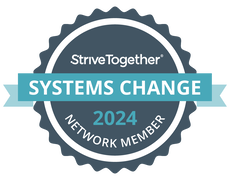|
From May 2007 to May 2016, 1.9 million occupations were added in the healthcare field requiring postsecondary education for entry. This includes nurses who require a bachelor's degree and doctors or dentists who require a doctoral or professional degree.
Credentials are a way companies can measure one’s knowledge. There’s only so much one can see or assume on a resume about someone’s knowledge and what they can or can’t do, so credentials are way to relate one’s human capital and give some value. In a knowledge driven economy, credentials equal skill. “If you look at the lifetime earnings data, the more post-secondary education individuals have, the greater their earnings tend to be. These lifetime earnings typically far exceed the cost of a higher education,” according to Dr. Robert Ducoffe, Provost and Vice Chancellor at University of Wisconsin-Parkside.“That doesn’t mean that people don’t struggle to afford college, it just means it’s still a really good investment. There are also studies that show that people who earn a higher education are more active in their communities, vote at higher rates, are more satisfied, generally, with their lives, and healthier, and they tend to pass these traits on to their children. “Regarding enrolling in college right after high school, the data here are clear as well. The longer an individual postpones going to college after high school, the less likely they are to complete a college degree. Life has a tendency to get in the way of focusing on higher education as people get older, marry, have children, work full-time, etc.” Not all students want a four-year degree. However, many careers that previously did not require a postsecondary credential now do. Beyond a four-year degree, there are a number of options to consider in different fields—many of which are cost efficient. Gateway Technical College has, for example, programs for those interested in going into a more hands on field, like the HVAC/R associate’s degree. In the two year program, students get to work with two homes working with radiant heat in floors, ductwork systems, and high velocity systems. Even a career to become an esthetician or barber requires schooling that may include courses like chemistry or english. When deciding what one enjoys doing with their time be it their passion or skills that they enjoy practicing, looking into the requirements and educational degrees needed for that can help in preparing oneself early on to reach those goals. How to Get Involved
Comments are closed.
|
Categories
All
Archives
May 2024
|


